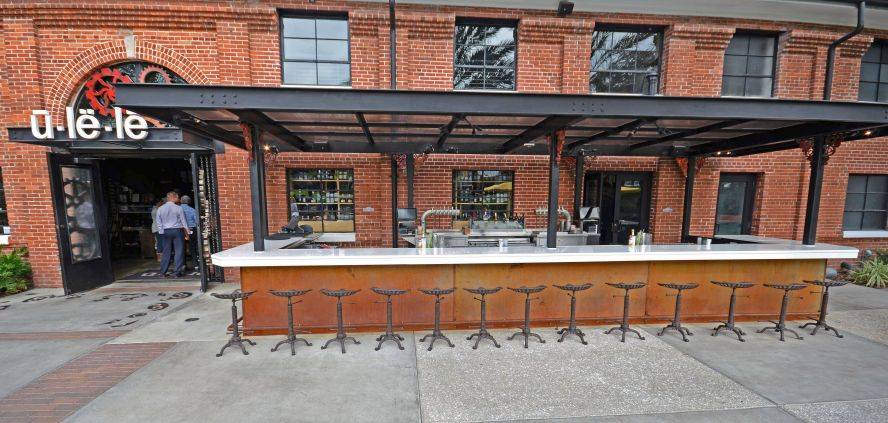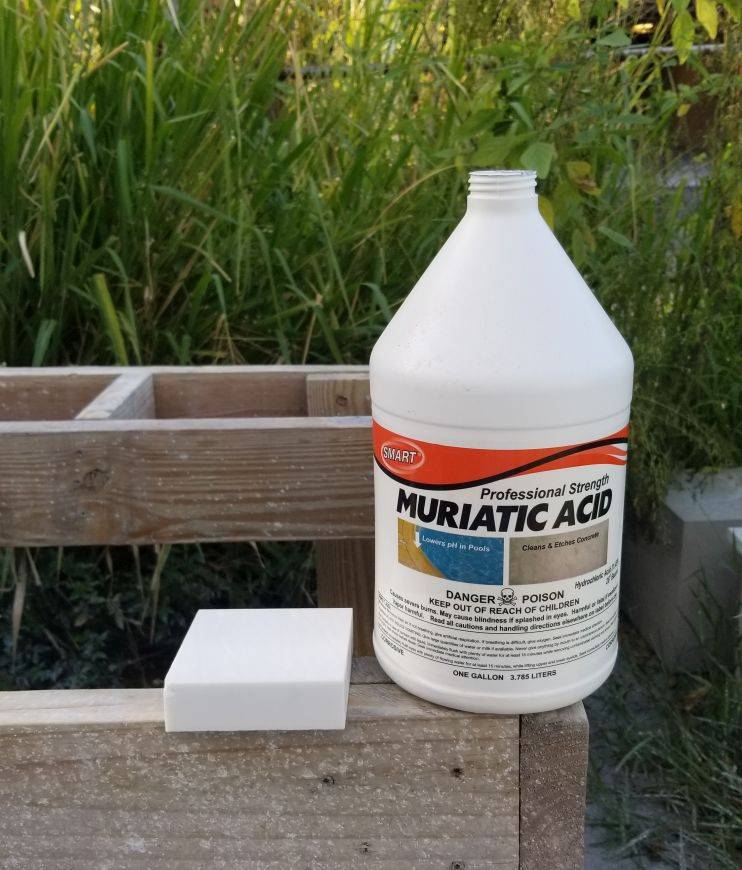Last updated on January 8th, 2021 at 03:53 pm
White Glass Countertops Acid Test.
We poured acid on our White Glass Countertops and our Textured Glass Countertops to see how they would resist acid etching. At Downing Designs we offer the most unusual assortment of custom countertops in the USA. No other fabricator offers in-house custom Textured Glass Countertops, White Glass (nanoglass, crystallized glass), custom Concrete, as well as the usual suspects like granite and quartz. Our forte is to create designs unlike any other, and with unusual material combinations. In order to assess their durability we intentionally press the limits of our materials to understand their ability to withstand the harshest treatments when we consult and recommend to owners for their homes, bars, restaurants. Having scrap pieces in abundance helps as we can truly test them without reservation. In this blog we report on the ability of White Glass (aka NanoGlass) to withstand Muriatic Acid (aka Hydrochloric Acid) poured directly onto its surface. As ridiculous as this sounds, we thought we would try it anyway to see the result. We poured undiluted Muriatic Acid on to the White Glass and Textured Glass, and let it sit for 24 hours. This is a highly corrosive acid, not likely found on most clients countertops…but no matter…we wanted to know what would happen. During the test, some of the acid did flow onto the ground, where we had some concrete residue. Those drippings impressed us as to just how corrosive this acid is in reality. It generated HCL “smoke”, fizzed, and bubbled. It very must resembled the action in the movie “Alien” when they cut the space creatures skin and it squirted its acid/blood onto the deck and almost ate through their space ship. So we knew the acid was highly corrosive, but apparently just not tough enough to eat the White Glass. The resulting corrosion observed was in a word, NOTHING. No etching, staining, marking…just nothing.
Why is this important?
You say most stone countertops are coated in layers of sealants. How can acid get through and etch the surface and create a dull spot? Its simply because most sealers are not acid-proof for stone countertops. Stones like limestone and marble are the most susceptible to acid etching because they have a high concentration of the mineral calcite. Calcite reacts to acids in even weak solutions and causes it to dissolve. On your countertop, this most often results in an etching, which is a noticeably dull spot where the acid has reacted to the top layer of stone. If the acid is left on long enough, the stone can degrade further and cause an indentation.
Granite is much more resistant to acid etching because it contains little to no calcite, though the stone still has natural pits and fissures that can trap acids and degrade slowly over time. Still, it shouldn’t be as big of a problem as with marble and limestone.
So, which acids should you worry about? For kitchen countertops, you should be careful about not spilling lemon juice, vinegar, wine, or cut any acidic fruits and vegetables like tomatoes and pineapples directly on the countertop. You should also be careful of common household cleaners, which can be very acidic as well. Most sealants won’t prevent etches, unless you have a thick layer of epoxy or polyurethane and even those change the finish in a way that most don’t find appealing. With that said, always use specially formulated cleaners on your countertop, always use a cutting board, and make sure you clean up any spills ASAP or they can leave an etch faster than you may think.
So, next time you are planning on serving acidic drinks (wine, fruit drinks, etc.) go ahead… don’t worry about staining our White Glass Countertops. They are battle tested with chemicals that are far harsher than you will ever encounter, and come away clean. Zero staining. Zero cigarette burn. Zero hair dye stain. Zero maintenance. Just the best countertop material we know of…period.


